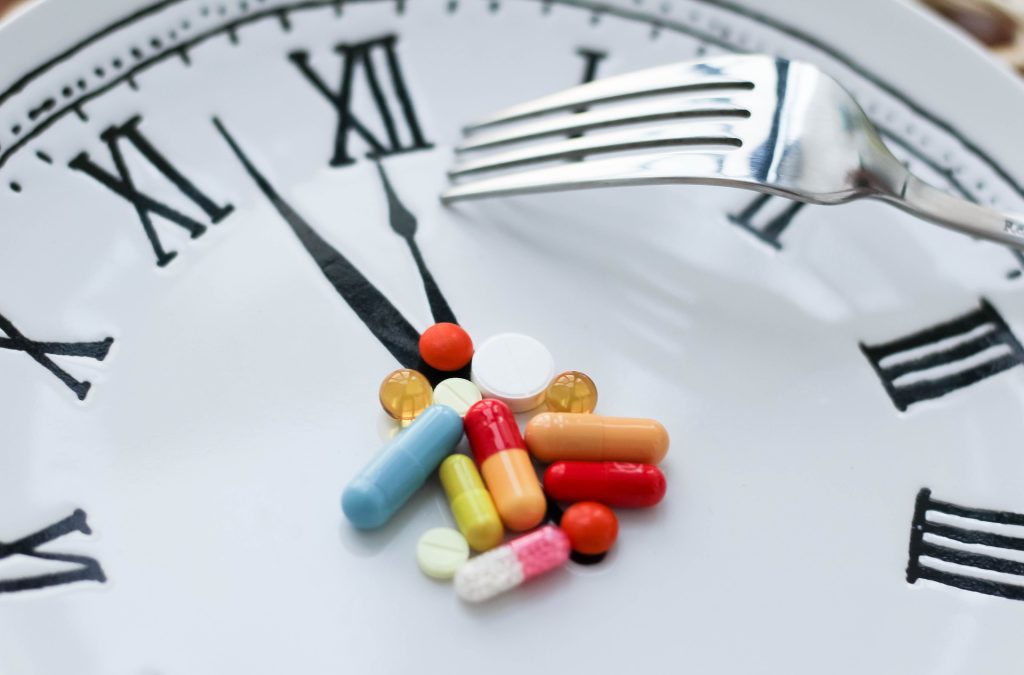When you fast, your body goes into a state of ketosis – which can lead to some pretty dramatic health benefits. But is it also necessary to take supplements in order to reap the benefits of fasting? Let’s take a look at the pros and cons of taking vitamins while fasting to see if it’s worth your time.
What are Vitamins?
A vitamin is a nutrient that the body needs in small amounts to stay healthy. Vitamins are found in food and supplements, and can be either water-soluble or fat-soluble. Water-soluble vitamins dissolve in water and are excreted in the urine. Fat-soluble vitamins dissolve in oils and are stored in the body.
There are many different types of vitamins, each with its own benefits, but NSP Vitamins have it all. Some examples include: vitamin C helps protect cells from damage, vitamin E helps maintain skin health, and vitamin K helps keep bones strong. The most important thing to remember when taking vitamins is to speak with your doctor before starting a new regimen, as some vitamins may interact with other medications you’re taking.
What are the Benefits of Vitamins?

There are many benefits to taking vitamins while fasting. Vitamins can help to improve your overall health, bolster your immune system, and support a healthy weight. Additionally, some vitamins may help to improve digestion and absorption of nutrients during fasting.
How Do I Take Vitamins When Fasting?
There is no one-size-fits-all answer to this question, as the best way to take vitamins when fasting may vary depending on your specific needs and diet. However, some tips on taking vitamins while fasting include consuming a variety of vitamin-rich foods throughout the day and supplementing with a multivitamin or mineral supplement if you’re not getting enough from food.
What are the Benefits of Taking Vitamins During Fasting?
When you fast, your body is going through a major detoxification process. This means that many harmful substances are being eliminated from your system. One of these substances is the unhealthy build-up of toxins in your liver. Taking supplements containing vitamins and minerals can help to support this detoxification process and ensure that the weight loss benefits of fasting are maximized.
Supplementing with specific vitamins and minerals during fasting can help to:
- Boost metabolism
- Support healthy blood sugar levels
- Promote healthy hair and nails
- Support immune system function
- Improve energy levels
When Should You Take Vitamins During Fasting?

When you are fasting, it is important to maintain a balanced diet and take supplements such as vitamins. Vitamins can help keep you healthy while fasting. However, it is important to consult with a healthcare professional before taking any supplements while fasting. There are many factors that need to be considered, such as your individual health condition and the type of fast you are undertaking.
Some people choose to take a multivitamin and mineral supplement while fasting to make sure they are getting all of the nutrients they need. Others may choose to take a vitamin B-12 supplement, which is important for those who are vegan or vegetarian. Always consult with your healthcare professional before taking any supplements during fasting.
How Much Vitamins Should You Take During Fasting?
There are a few things to consider when taking vitamins while fasting. First, it’s important to make sure that you’re getting the right type of vitamin. Some vitamins are better absorbed when taken with meals, while others can be more effective when taken on an empty stomach. In addition, it’s important to monitor your intake and adjust as needed. Too much or too little of a certain vitamin can lead to health problems. Always speak with a healthcare professional before making any changes to your diet or supplementation regimen.
The American Dietetic Association (ADA) recommends that adults take a daily multivitamin and mineral supplement as part of a healthy diet. The recommended doses vary, but the ADA says that most people need about 40 micrograms (mcg) of vitamin B12 per day and 2,000 mcg of vitamin D. The Food and Drug Administration (FDA) recommends that people who are fasting avoid taking any supplements or medications containing iron, as this can lead to iron deficiency anemia.
Potential Side Effects of Taking Vitamins While Fasting

There are a few potential side effects of taking vitamins while fasting, including nausea and vomiting. If these side effects occur, it’s best to discontinue the vitamin regimen and wait until the fast is over before starting again. Additionally, some people report feeling tired or lightheaded after taking a multivitamin while fasting. If this happens to you, it’s best to avoid taking any kind of supplements while fasting.
Overall, the side effects of taking vitamins while fasting are relatively minor and typically only occur when taking high doses of supplements. If you experience any adverse effects while fasting, it’s best to discontinue the vitamin regimen and consult with a healthcare professional.
Conclusion
There is a lot of debate surrounding whether or not people should take vitamins while fasting. Some believe that they help to improve the health of the body, while others argue that vitamins can interfere with the fast and cause negative consequences. Ultimately, it is up to you whether or not you feel comfortable taking supplements during your fast. Just be sure to talk to your doctor before doing so in order to make sure that any supplement you choose is safe for your particular fasting schedule. For some people, taking a multivitamin every day is a good way to bolster their nutrient intake and make sure they are getting all of the vitamins and minerals they need. Others might find that skipping meals altogether allows them to get all the nutrients they need without bothering with supplements. It’s important to listen to your body and figure out what works best for you given your unique circumstances.




